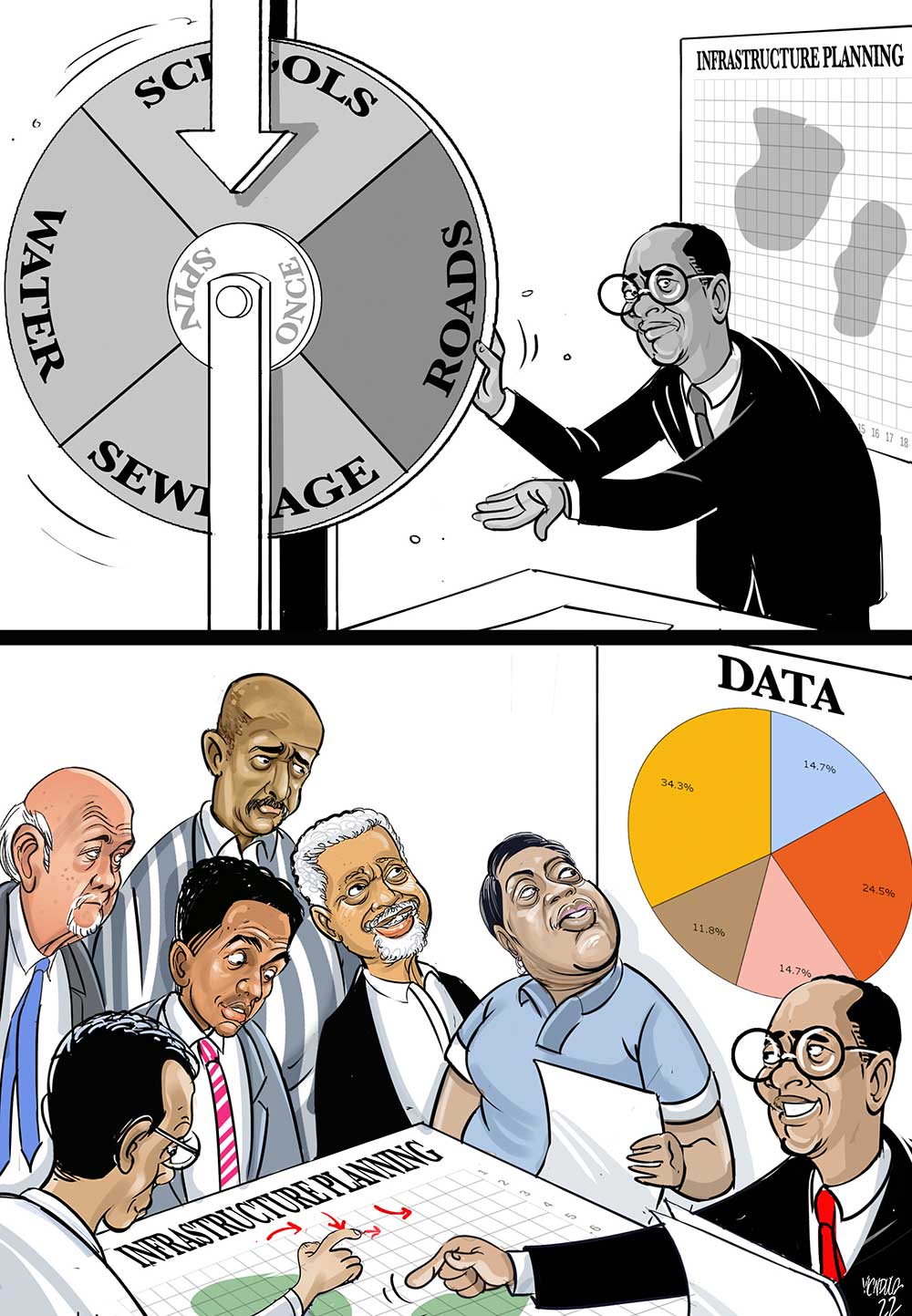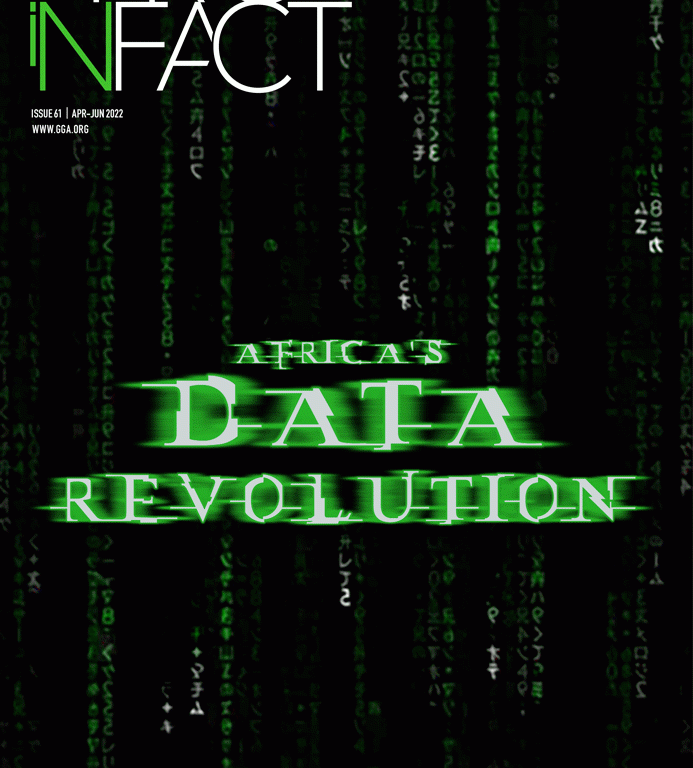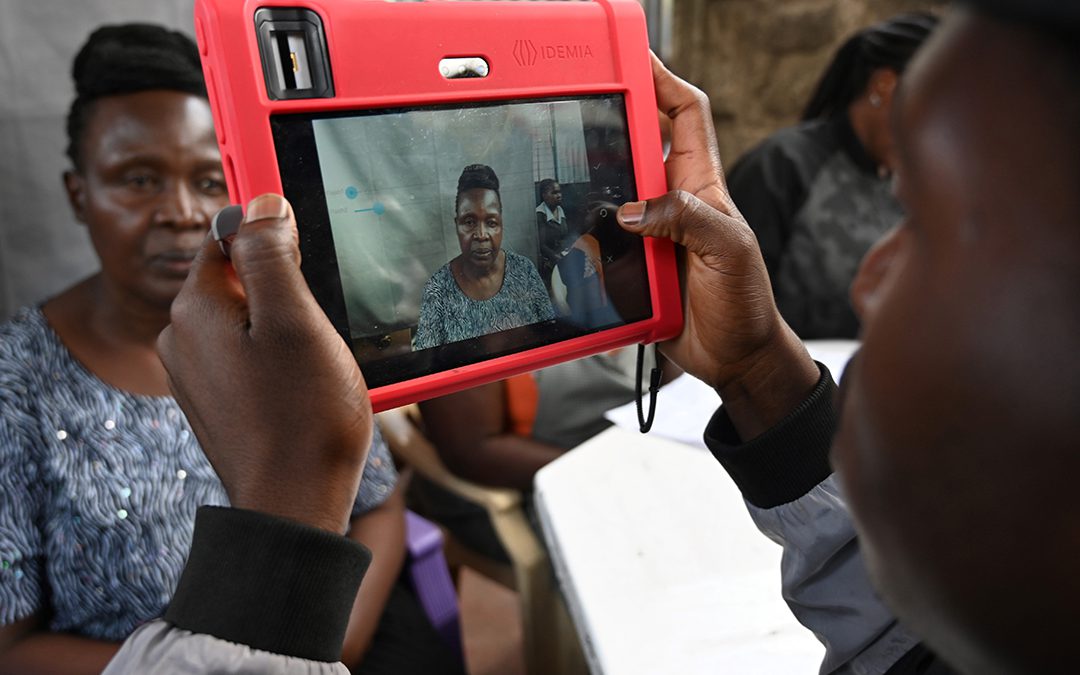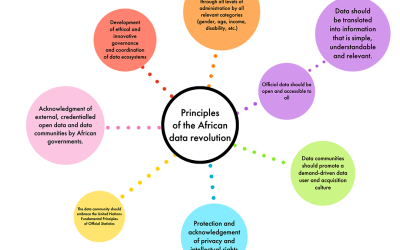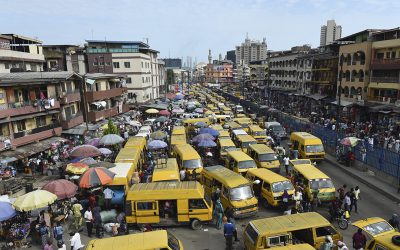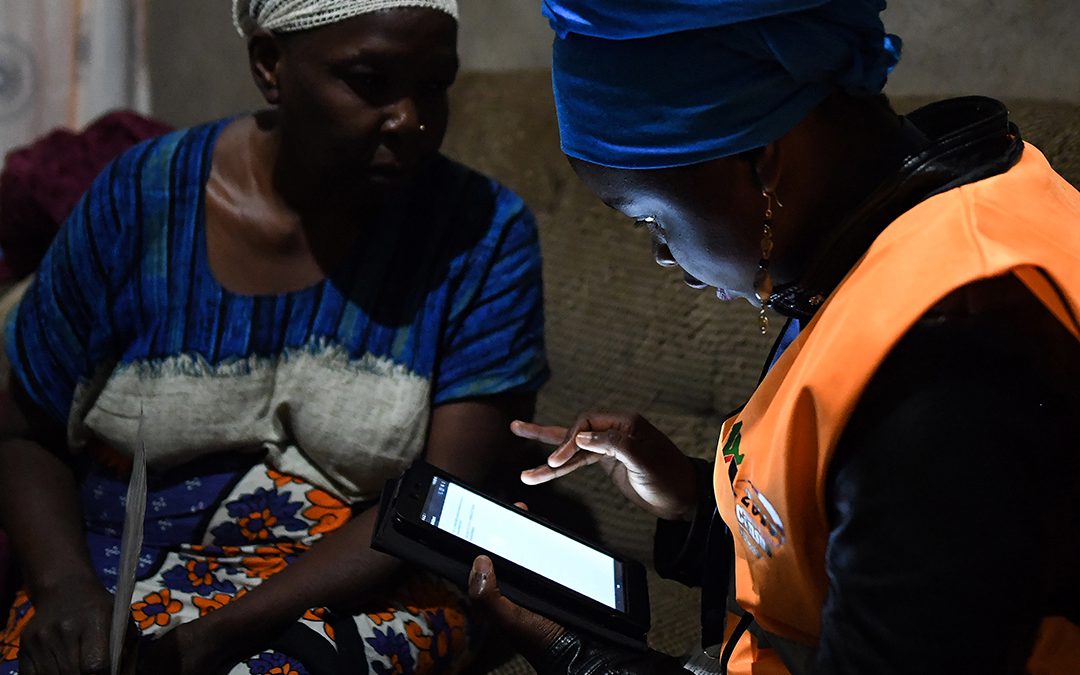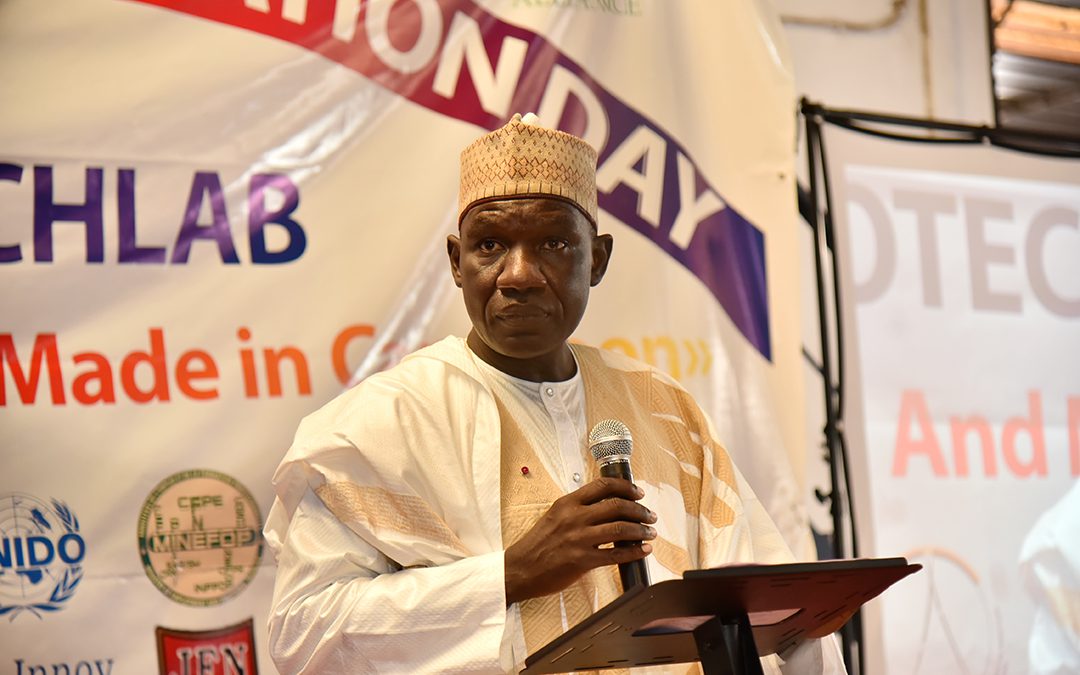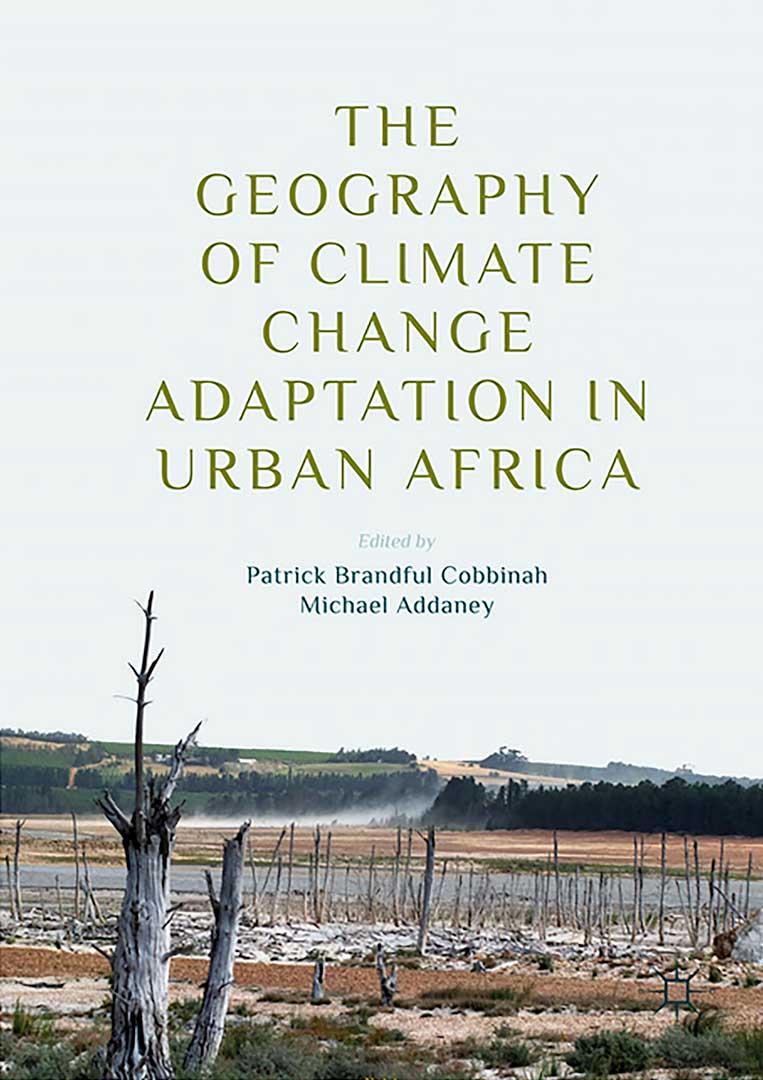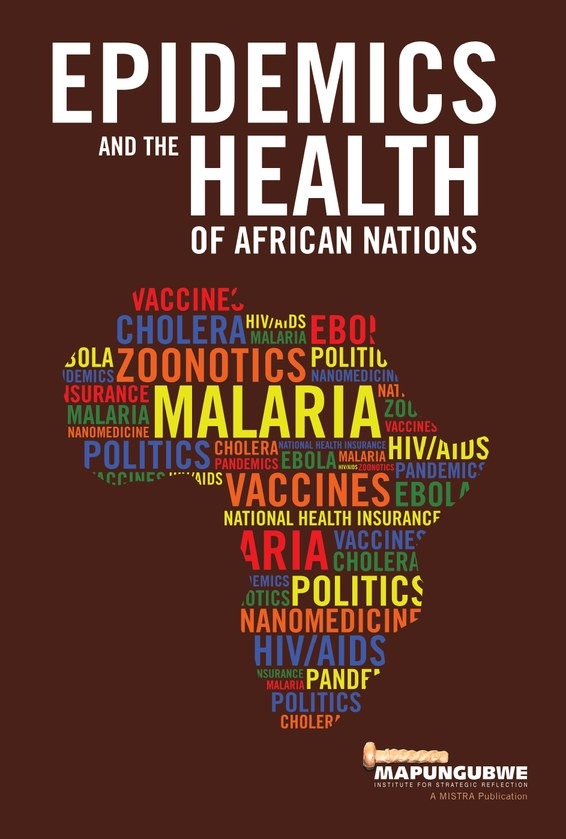ISSUE 61
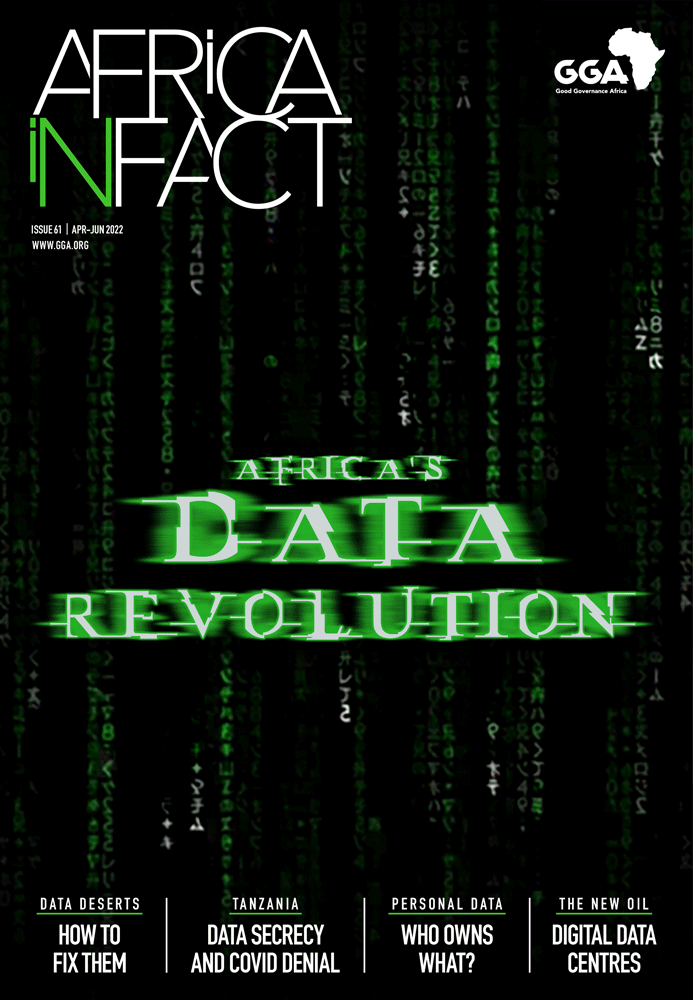
Cloud-based ‘data ecosystems’ the answer to Africa’s data desert?
Accurate, accessible, and intelligible data is critical to inclusive development and governance in Africa, but the continent has long been riddled with “data deserts” where no sound, evidence-based policies can take root.
Data sovereignty is key
Africa’s huge infrastructure deficit is well documented. With connectivity across the continent growing exponentially, digital infrastructure has become a key area that requires the urgent attention of investors and policymakers alike.
Democracies die in data darkness
US news organisation The Washington Post has “democracy dies in darkness” emblazoned on its masthead, and this is true of all forms of government, and all forms of democracy.
Africa’s data revolution: East Africa’s hidden potential
As the Fourth Industrial Revolution (4IR), founded on data, data ecosystems and the data economy gains global momentum, there is a crucial need for African governments to harness the opportunities this revolution presents.
Harnessing the data revolution for sustainable development in Africa
Africa must boost the capacity of national data ecosystems in the implementation cycle of the sustainable development goals, embracing revolutionary changes in data collection, management, curation, analysis and use.
Why data is vital for policy-making and development
Good, reliable statistics are essential for measuring progress in reaching development goals and providing essential information about the effectiveness of policies and programmes, according to Eurostat, the statistical office of the European Union.
Namibia’s data gaps fuel policy blindness
The fact that Namibia will not be conducting a census in 2022 – which would have collected data on more than 80 indicators for everything from population size, location and migration, to housing, health and education demographics – exacerbates perennial concerns about the usefulness and credibility of official data.
Data sharing is vital for transparency and good governance
The pressure is on across Africa for governments to implement policies that will enable them to achieve their sustainable development goals (SDGs).
Nigerian secrecy laws impede information transparency
At the Abuja-based Centre for Journalism, Innovation, and Development in Nigeria, Ijeoma Okereke, a programme officer, keeps a list of government...
Cloud-based ‘data ecosystems’ the answer to Africa’s data desert?
Accurate, accessible, and intelligible data is critical to inclusive development and governance in Africa, but the continent has long been riddled with “data deserts” where no sound, evidence-based policies can take root.
Data sovereignty is key
Africa’s huge infrastructure deficit is well documented. With connectivity across the continent growing exponentially, digital infrastructure has become a key area that requires the urgent attention of investors and policymakers alike.
Democracies die in data darkness
US news organisation The Washington Post has “democracy dies in darkness” emblazoned on its masthead, and this is true of all forms of government, and all forms of democracy.
Africa’s data revolution: East Africa’s hidden potential
As the Fourth Industrial Revolution (4IR), founded on data, data ecosystems and the data economy gains global momentum, there is a crucial need for African governments to harness the opportunities this revolution presents.
Africa’s statistical capacity by country
Cameroon’s statistical conundrum
In Cameroon, many people are dissatisfied with the budgetary allocations to different administrative regions and sectors. Under President Paul Biya, 89, who has uninterruptedly ruled Cameroon for close to 40 years, there has been glaring disregard for the use of data – even often unreliable – in...
BOOK REVIEWS
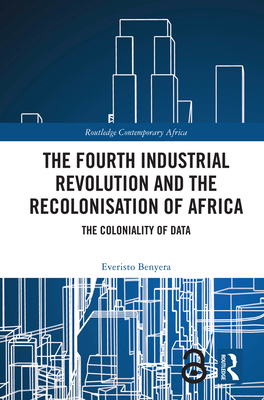
Book review: The Fourth Industrial Revolution and the Recolonisation of Africa
Review of The Fourth Industrial Revolution and the Recolonisation of Africa, The Coloniality of Data, by Everisto Benyera, Routledge, Oxford, 2021 Effusive predictions have been made about the benefits of the fourth industrial revolution (4IR), with some commentators seeing it as a panacea for every ill suffered by society. Everisto Benyera disagrees, seeing the harvesting of data at the heart of the “revolution” as a sinister means to recolonise a continent long suffering from the effects of colonial and neo-colonial penetration. Benyera asserts that Africa “will accrue minimum benefits and suffer maximum consequences in the 4IR”. Moreover, “the affluence of the Global North is funded by the poverty of the Global South”, and it is in their interests to keep Africa in the virtual chains of 4IR. He also asks why Africa remains in a state of poverty and underdevelopment even though colonialism officially ended when most states were...
